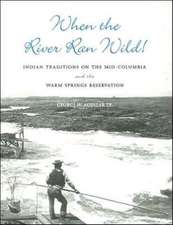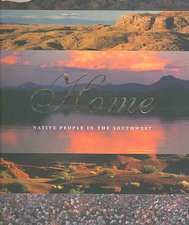Chiefdoms, Collapse, and Coalescence in the Early American South
Autor Robin Beck Cuvânt înainte de Charles M. Hudsonen Limba Engleză Hardback – 23 iun 2013
| Toate formatele și edițiile | Preț | Express |
|---|---|---|
| Paperback (1) | 286.89 lei 6-8 săpt. | |
| Cambridge University Press – 28 mar 2018 | 286.89 lei 6-8 săpt. | |
| Hardback (1) | 729.73 lei 6-8 săpt. | |
| Cambridge University Press – 23 iun 2013 | 729.73 lei 6-8 săpt. |
Preț: 729.73 lei
Preț vechi: 848.53 lei
-14% Nou
Puncte Express: 1095
Preț estimativ în valută:
139.63€ • 146.18$ • 115.54£
139.63€ • 146.18$ • 115.54£
Carte tipărită la comandă
Livrare economică 05-19 aprilie
Preluare comenzi: 021 569.72.76
Specificații
ISBN-13: 9781107022133
ISBN-10: 1107022134
Pagini: 322
Ilustrații: 22 b/w illus. 21 maps 2 tables
Dimensiuni: 152 x 229 x 19 mm
Greutate: 0.66 kg
Ediția:New.
Editura: Cambridge University Press
Colecția Cambridge University Press
Locul publicării:New York, United States
ISBN-10: 1107022134
Pagini: 322
Ilustrații: 22 b/w illus. 21 maps 2 tables
Dimensiuni: 152 x 229 x 19 mm
Greutate: 0.66 kg
Ediția:New.
Editura: Cambridge University Press
Colecția Cambridge University Press
Locul publicării:New York, United States
Cuprins
Part I. Chiefdoms: 1. The desert of Ocute; 2. The quartermaster's list; Part II. Collapse: 3. The stranger Indians; 4. The Waxhaws' burden; Part III. Coalescence: 5. The color of war; 6. The deerskin map.
Recenzii
'Beck not only opens up the Mississippian world of the sixteenth century but also the various historical forces that worked to transform that world during the seventeenth and early eighteenth centuries. He writes with clarity, confidence, and authority and, without losing any of the power of the evidence or theory, he is careful to explain professional archaeological concepts for non-specialists. It is as fine a piece of scholarship as any I have ever seen.' Robbie Ethridge, University of Mississippi
'This is a tour de force on the subject of culture contact that should be widely read by both archaeologists and historians. Beck's argument is theoretically sophisticated and at the same time clearly presented.' David G. Anderson, University of Tennessee
'… a must-read for teachers and scholars of the Native South.' Journal of American Studies
'This volume makes significant contributions to Southeastern archaeology and will be of great interest to anyone working with late prehistoric or colonial era indigenous communities.' Southeastern Archaeology
'Robin Beck's study traces the origin of the Catawba Indians from precontact Appalachian Mississippian chiefdoms through their emergence as a nation in the eighteenth-century Southeast … a compelling argument that combines the best aspects of anthropological and historical methodology grounded in a thorough discussion of its theoretical implications … This book is sure to open new avenues of inquiry not only for North American case studies but also for similar sociopolitical geneses elsewhere.' George Edward Milne, The Journal of American History
'This is a tour de force on the subject of culture contact that should be widely read by both archaeologists and historians. Beck's argument is theoretically sophisticated and at the same time clearly presented.' David G. Anderson, University of Tennessee
'… a must-read for teachers and scholars of the Native South.' Journal of American Studies
'This volume makes significant contributions to Southeastern archaeology and will be of great interest to anyone working with late prehistoric or colonial era indigenous communities.' Southeastern Archaeology
'Robin Beck's study traces the origin of the Catawba Indians from precontact Appalachian Mississippian chiefdoms through their emergence as a nation in the eighteenth-century Southeast … a compelling argument that combines the best aspects of anthropological and historical methodology grounded in a thorough discussion of its theoretical implications … This book is sure to open new avenues of inquiry not only for North American case studies but also for similar sociopolitical geneses elsewhere.' George Edward Milne, The Journal of American History
Notă biografică
Descriere
Offers a new framework for understanding the transformation of the Native American South during the first centuries of the colonial era.










